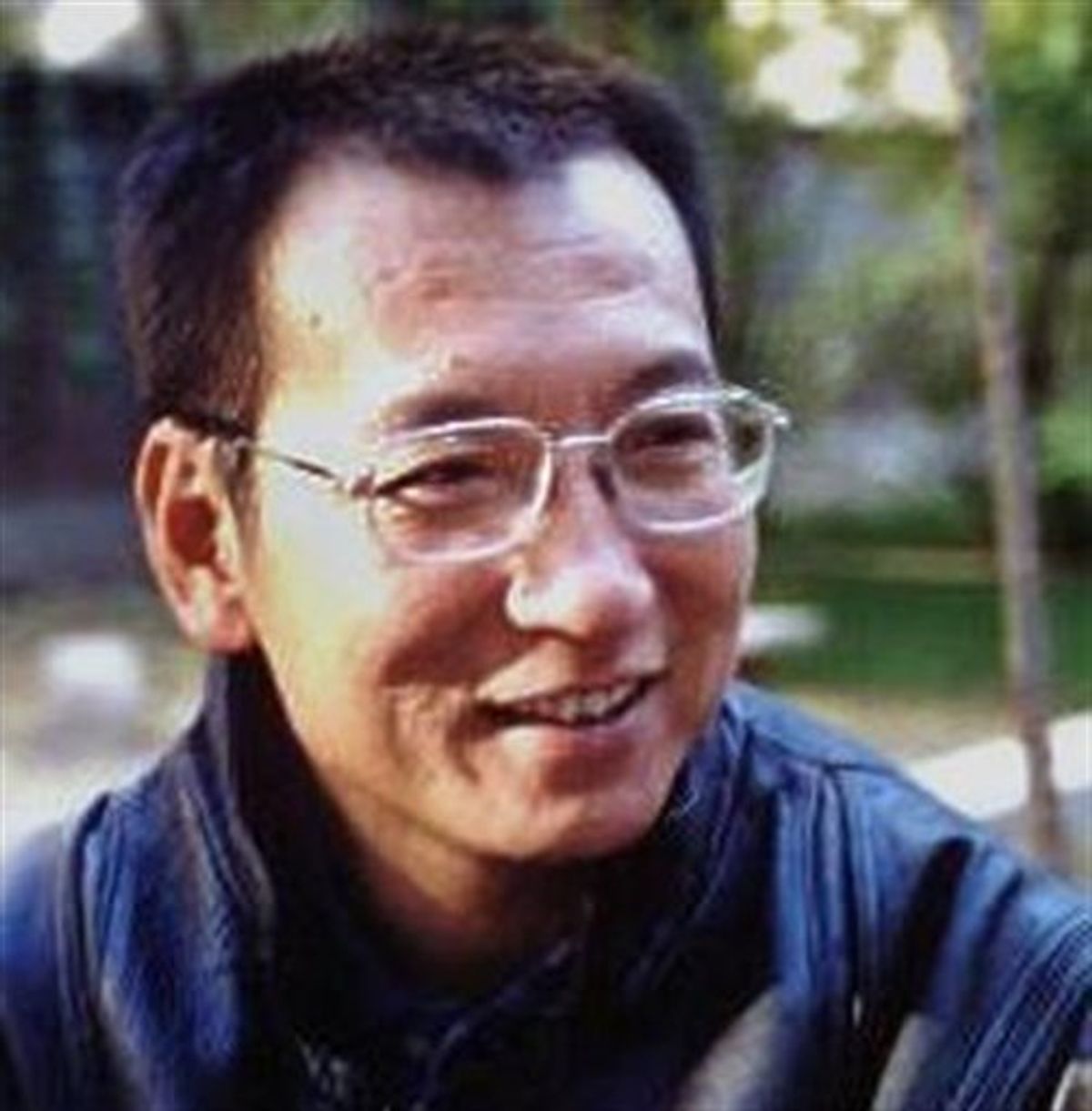If you are curious about Liu Xiaobo, the Chinese dissident who was awarded the Nobel Peace Prize, I don't think there is a better place to start than the extraordinary document he released in December 2009, as he was awaiting trial on charges of "inciting subversion of state power": "I Have No Enemies -- My Final Statement."
Here are two excerpts, one addressed to his jailers, and one to his wife -- one of the most incredible expressions of love I've ever read.
But I still want to tell the regime that deprives me of my freedom, I stand by the belief I expressed twenty years ago in my "June Second hunger strike declaration" -- I have no enemies, and no hatred. None of the police who monitored, arrested and interrogated me, the prosecutors who prosecuted me, or the judges who sentence me, are my enemies. While I'm unable to accept your surveillance, arrest, prosecution or sentencing, I respect your professions and personalities. This includes Zhang Rongge and Pan Xueqing who act for the prosecution at present: I was aware of your respect and sincerity in your interrogation of me on 3 December.
For hatred is corrosive of a person's wisdom and conscience; the mentality of enmity can poison a nation's spirit, instigate brutal life and death struggles, destroy a society's tolerance and humanity, and block a nation's progress to freedom and democracy. I hope therefore to be able to transcend my personal vicissitudes in understanding the development of the state and changes in society, to counter the hostility of the regime with the best of intentions, and defuse hate with love.
Pretty good stuff. But this next passage is almost too much to bear:
Ask me what has been my most fortunate experience of the past two decades, and I'd say it was gaining the selfless love of my wife, Liu Xia. She cannot be present in the courtroom today, but I still want to tell you, my sweetheart, that I'm confident that your love for me will be as always. Over the years, in my non-free life, our love has contained bitterness imposed by the external environment, but is boundless in afterthought. I am sentenced to a visible prison while you are waiting in an invisible one. Your love is sunlight that transcends prison walls and bars, stroking every inch of my skin, warming my every cell, letting me maintain my inner calm, magnanimous and bright, so that every minute in prison is full of meaning. But my love for you is full of guilt and regret, sometimes heavy enough to hobble my steps. I am a hard stone in the wilderness, putting up with the pummeling of raging storms, and too cold for anyone to dare touch. But my love is hard, sharp, and can penetrate any obstacles. Even if I am crushed into powder, I will embrace you with the ashes.
I would like to personally thank the Nobel committee, not only for standing up to Chinese bullying, but for encouraging me to seek out and read that statement.



Shares